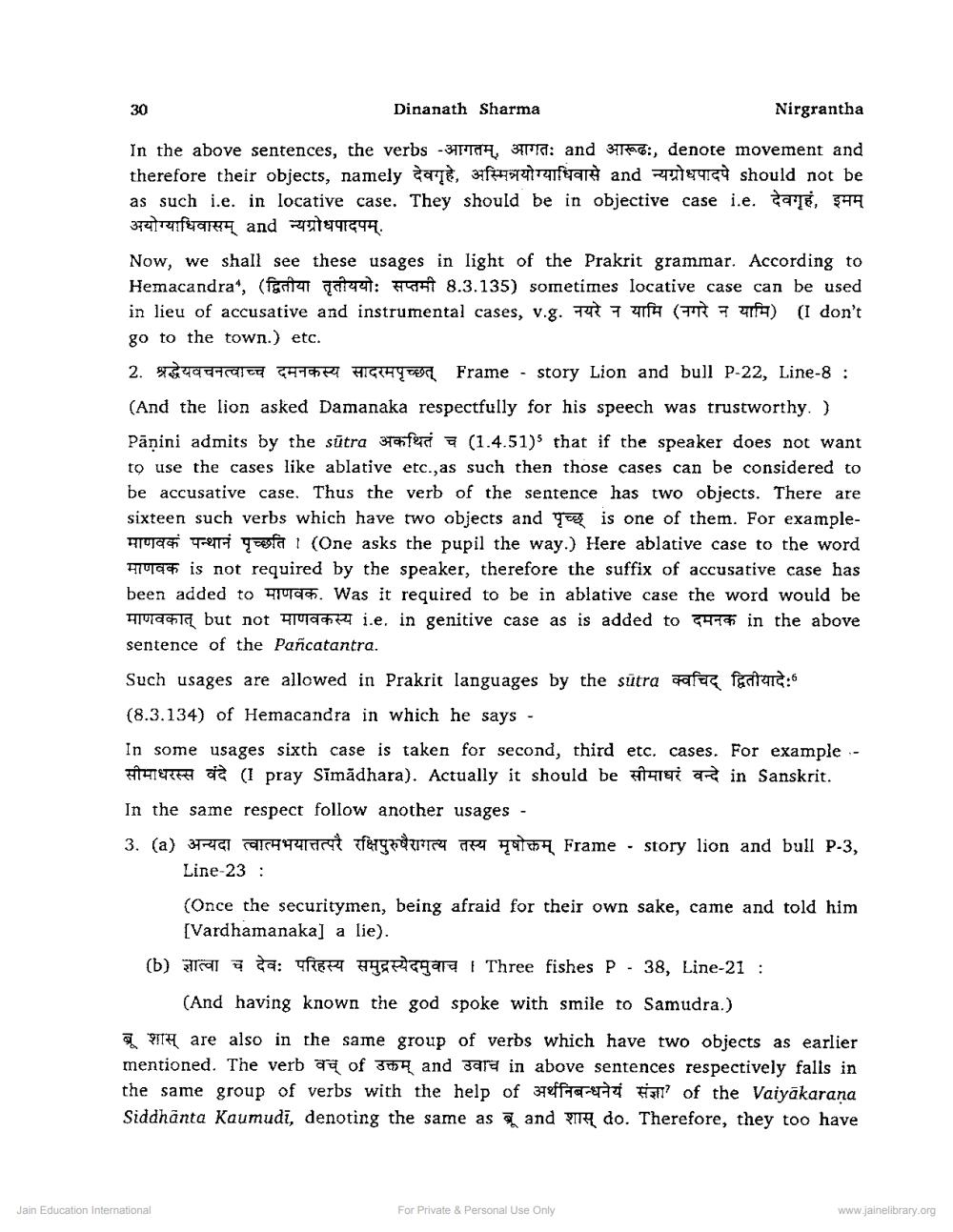Book Title: Non standard Usages in Pancatantra Author(s): Dinanath Sharma Publisher: Z_Nirgrantha_1_022701.pdf and Nirgrantha_2_022702.pdf and Nirgrantha_3_022703.pdf View full book textPage 2
________________ 30 Dinanath Sharma Nirgrantha In the above sentences, the verbs -आगतम्, आगतः and आरूढः, denote movement and therefore their objects, namely देवगृहे, अस्मिन्नयोग्याधिवासे and न्यग्रोधपादपे should not be as such i.e. in locative case. They should be in objective case i.e. a, 544 अयोग्याधिवासम् and न्यग्रोधपादपम्. Now, we shall see these usages in light of the Prakrit grammar. According to Hemacandra", (FH14 dieu: 55 8.3.135) sometimes locative case can be used in lieu of accusative and instrumental cases, v.g. 22 7 AH (977A) (I don't go to the town.) etc. 2. 4957dta 477787 HIGHYTROT Frame - story Lion and bull P-22, Line-8 : (And the lion asked Damanaka respectfully for his speech was trustworthy. ) Pāņini admits by the sūtra 37aferri (1.4.51) that if the speaker does not want to use the cases like ablative etc., as such then those cases can be considered to be accusative case. Thus the verb of the sentence has two objects. There are sixteen such verbs which have two objects and res is one of them. For example77740i Teri Yafa 1 (One asks the pupil the way.) Here ablative case to the word 4140 is not required by the speaker, therefore the suffix of accusative case has been added to 1976. Was it required to be in ablative case the word would be माणवकात् but not माणवकस्य i.e. in genitive case as is added to दमनक in the above sentence of the Pañcatantra. Such usages are allowed in Prakrit languages by the sutra क्वचिद् द्वितीयादे: (8.3.134) of Hemacandra in which he says - In some usages sixth case is taken for second, third etc. cases. For example - LTERATI (I pray Simădhara). Actually it should be the fire in Sanskrit. In the same respect follow another usages - 3. (a) TRICI CE C ferger T 7916 Frame - story lion and bull P-3, Line-23 : (Once the securitymen, being afraid for their own sake, came and told him [Vardhamanaka) a lie). (b) gral da: ER WERTY | Three fishes P. 38, Line-21 : (And having known the god spoke with smile to Samudra.) a t are also in the same group of verbs which have two objects as earlier mentioned. The verb e of 30 and are in above sentences respectively falls in the same group of verbs with the help of 37effacera FSI? of the Vaiyakarana Siddhanta Kaumudi, denoting the same as aand vir4 do. Therefore, they too have Jain Education International For Private & Personal Use Only For Private & Personal Use Only www.jainelibrary.orgPage Navigation
1 2 3 4 5 6 7 8
